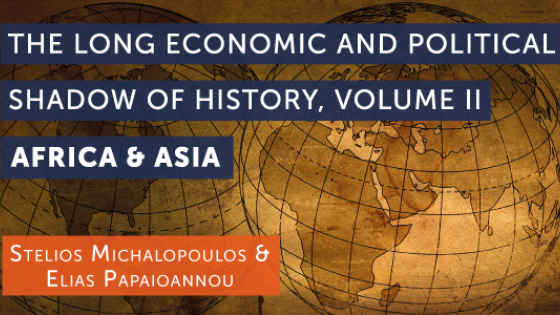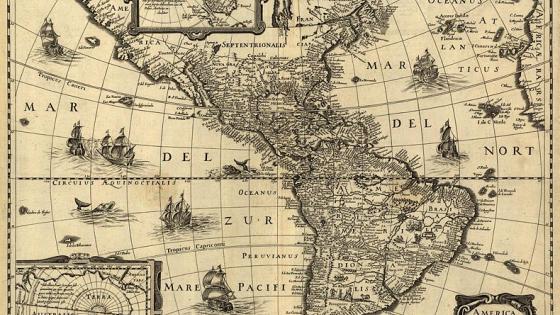Views about Africa are, were, and most likely will continue to be highly polarising. Some economists, finance professionals, multinational executives, global entrepreneurs, and businesspeople are bullish, as there are investment opportunities in infrastructure, manufacturing, and technology, coupled with a young population that is increasingly more educated and confident. However, many are less optimistic, concerned about misgovernance, conflict, weak state capacity, corruption and poor infrastructure. Pessimists point to Africa’s dark past, including the atrocities and exploitation during colonisation, and the slave trades.
In 2000, The Economist called Africa “the hopeless continent”. A decade later, after strong growth and institutional advancement, it renamed it “the hopeful continent”. A few years later, in 2016, the magazine described it in more nuanced terms as a land of “1.2 billion opportunities” – a reference to the potential market that its huge population constituted. Economics research has followed a similar train. In the 1970s, 1980s, and 1990s, only a handful of papers were published outside specialised outlets. But, since the 2000s, a vibrant stream of research on African political economy and economic history has emerged. The new economic history approach departs greatly from prevailing thinking in important ways.
First, scholars realised that ill-conceived, post-independence urban-rural agriculture and trade policies, authoritarianism, conflict, corruption, and lack of structural transformation (the foci of pre-2000 studies) often had deep roots stemming from colonial extraction, enslavement, the artificial design of country borders, underinvestment, and cash-crop specialisation during colonisation.
Second, the new economics research became more interdisciplinary. For example, applied research started scrutinising influential ideas proposed by historians, political scientists, sociologists, and even cultural anthropologists.
Third, the studies began moving beyond purely economic outcomes and drivers of development. They examined, for example, the origins and the implications of the vast differences in social capital, civicism, cultural preferences, and values. This more evolutionary approach to economic history has led to a fruitful dialogue between economics and the other social sciences; albeit one not without tension.
Fourth, influenced by the ‘credibility revolution’ that started in labour economics in the 1990s and expanded to micro-development in the 2000s, research on economic growth and long-term development embraced the desire to identify causal effects – a far more challenging objective when working at macro scale relative to micro scale. Notwithstanding the challenges involved in forming reasonable counterfactuals for episodes such as colonisation or enslavement, research moved decisively from cross-country correlations to within-country analyses, which helped make progress on improving causal inference. Besides the more traditional cross-country designs, linking for example enslavement during Africa’s slave trades to contemporary development (Nunn 2008), a ‘meso’ approach merged that combined spatially disaggregated data from colonial archives with anthropological maps and contemporary administrative, survey and satellite imagery data, often exploiting within-country variation across regions (Michalopoulos and Papaioannou 2017a). Others took more-experimental micro-level designs tracing, for example, the impact of colonial schools across families and generations (Wantchekon et al. 2014). And we see increasing use of lab-in-the-field experiments and the use of self-conducted surveys, linked to historical phenomena like precolonial statehood (Lowes et al. 2017) and colonial violence.
Fifth, applied economics research has started to realise that African history is extremely complex. Centralised states with strong institutions emerged even in the midst of the slave trade. In addition, the colonial legacy is one of both extraction and repression that impeded development and of human capital investments boosting social mobility, often facilitating political mobilisation against colonialism.
This research agenda has produced a plethora of insights and has uncovered the shadow that Africa’s past casts on contemporary economic, social, and political development.
The need for a synthesis course
As research on historical African development gathers steam, with the support of the Wheeler Institute for Business and Development at London Business School, we have decided to design and offer an online course on “African History through the Lens of Economics”, bringing together the considerable volume of work in the economics literature of the past decades. We believe it is time to take stock, present the recent work to a wider audience (Rodrik 2021a), especially in Africa, and learn from it.
Besides, research on such profound topics as colonisation, the slave trades, and the Cold War is – and should be – inherently interdisciplinary. Economists have much to learn (Rodrik 2021b) from the detailed and meticulous work of historians and cultural anthropologists, while political science and African sociology and historiography offer valuable insights that economics research needs to study carefully and embrace. A much deeper contextual knowledge of African economies is desperately needed to understand the underlying forces shaping growth and development in Africa, such as the research taking place within the CEPR-led programme on Structural Transformation and Economic Growth (www.steg.cepr.org), which is supports the teaching initiative.
Conversely, we believe that the economist’s toolset, when applied with humility and care, can be equally valuable. The use of archival and other historical data (Fourie and Obikili 2019) has allowed scholars to reassess old theories and reveal a much richer picture of African’s living standards, output growth during colonisation (Broadberry and Gardner 2022), and skills of the past centuries (Frankema and Van Waijenburg 2019). Economics research has recently delved into folk tales (Michalopoulos and Xue 2021), trying to grasp ancient societies’ cultural, economic, and institutional background. Economics research has also come up with quantitative estimates, albeit rough, of the local and aggregate effects of first-order policies such as transportation investments, enslavement during Africa’s slave trades, forced labour, and missionary activities. Economic theory focusing on ‘Big Push’ industrialisation (Murphy et al. 1989), agglomeration, spatial linkages (Allen and Donaldson 2020), and structural transformation can be useful a way to understand the channels connecting the past with the present and to think about spillovers.
Economists and non-economists need to cooperate and learn from each other. We have thus invited leading but also younger scholars from political science, history, public policy, psychology, anthropology, and even linguistics to contribute to the course in an effort to foster constructive dialogue across the social sciences.
The need to understand Africa’s past has a long history in development, and was recognised as early as the mid-1960s when UNESCO launched the General History of Africa “to remedy the general ignorance on Africa’s history. The challenge consisted of reconstructing Africa’s history, freeing it from racial prejudices ensuing from slave trade and colonization, and promoting an African perspective”. We have also invited scholars from Africa, often working in African institutions, as we feel the need for a much more diverse set of viewpoints (Rodrik 2021a) and the need to decolonise research on African development, history, and economics. While we need way more in this direction, we look forward learning from our African colleagues, students, and other participants, and push on a frank and constructive dialogue.
Course synopsis
The course, which is free and open-access, covers most of the major episodes in African history that economics research has analysed following a rough chronological timeline.
Pre-colonial era. While we do not know much about Africa before the Columbian exchange and the advent of European influence, some recent studies that we plan to cover have used anthropological maps and archival information to study the contemporary role of:
- African pre-colonial ethnic institutions and the ecological (Fenske 2012) and geographic (Fenske 2013a) origins of the disease environment of African states (Alsan 2015).
- Ancestral lifeways and the impact of the mode of economic activity on development and conflict (McGuirk and Nunn 2021).
- Social structure (Moscona and Seck 2021), lineage (Moscona et al. 2020), and the impact of cultural norms such as polygyny (Fenske 2013b) and supernatural belief on long-run development.
The slave trades. Sub-Saharan Africa’s interactions with Europeans began during the slave trades. During the transatlantic slave trade, the most widely known, about 12 million Africans were shipped to the Americas; while about 8 million more were enslaved during the East Africa, the Red Sea, and the trans-Saharan slave trades. Nunn (2008) merged shipment data on slaves’ ethnic affiliation (besides port) with anthropological maps (compiled by prominent anthropologist George Peter Murdock) delineating African ethnic boundaries, and then examined the association between economic wellbeing and slave-trade intensity. A striking negative correlation between output per capita and slave-trade intensity emerged, revealing enslavement’s lasting adverse consequences. Africa’s population was massively impacted, shaping family and social organisation. Follow-up work delving into underlying mechanisms uncovered the deleterious consequences of the slave trades on trust, underinvestment in education, financial underdevelopment, authoritarianism and conflict (Nunn 2017).
The Scramble for Africa. A key aspect of colonisation was the absurd borders that Europeans drew in imprecise maps in the late 19th century when they carved up the largely unexplored continent. British Prime Minister Lord Salisbury put it bluntly: “We have been engaged in drawing lines upon maps where no white man’s feet have ever trod; we have been giving away mountains and rivers and lakes to each other, only hindered by the small impediment that we never knew exactly where the mountains and rivers and lakes were”. With some exceptions, the colonial borders persisted as African independence leaders and departing Europeans did not want to touch the issue in the 1950s. State artificiality, as reflected in the straightness of borders or the share of a country’s population belonging to an ethnic group that was split by colonial borders, has been shown to be a strong predictor of economic underdevelopment. War, repression and violence against civilians are concentrated in the historic homelands of partitioned by artificial colonial borders, within which ethnic groups are considerably more likely to face state repression and engage in civil wars with an explicit ethnic angle.
Colonisation. Research has tended to concentrate on the colonial era which, although relatively short-lived, had important effects on economic development following independence. The old debate about the impact of European colonisation in Africa has come into the spotlight again recently, as exemplified by demonstrators attacking the statutes of well-known imperialists, such as Belgian King Leopold II, who ruthlessly ruled Congo as his private fiefdom in the late 19th century, and Cecil Rhodes, who embodied imperialism more than any other. Empirical research in economics has studied its various facets:
- Colonial extraction, oppression and violence; looking at, for example, King Leopold’s rule of Congo (Lowes and Montero 2020) and French repression in Madagascar (Garcia-Ponce and Wantchekon 2018).
- Indirect rule that not only shaped economic and political development during colonisation, but also appears to have had lasting consequences as chiefs maintained their influence post-independence (Acemoglu et al. 2014), when African countries entered a vicious cycle of conflict-poverty-autocracy.
- The construction of colonial roads and railways (Jedwab et al. 2015) turned out to be beneficial; however, the impact of transportation and other investments (Huillery 2009) was small and local as European transportation investments were minimal and lacked any development strategy, since the primary objective was exporting resources and agriculture output. Perhaps most importantly, the limited investments came at a huge cost as Europeans and their local collaborators tortured, killed and incarcerated thousands of Africans.
- Christian missions played a major role, promoting not only religion (Nunn 2010) but also education and human capital (Wantchekon et al. 2014). Their influence appears lasting as their legacy continues to shape literacy, moral values, gender roles (Nunn 2012), social capital, and interpersonal trust (Okoye 2020).
Decolonisation and early independence. We will then move to decolonisation and the early post-independence period, when there was widespread optimism for the future of Africa. The independence movements (Garcia-Ponce and Wantchekon (2017), their type, as well as their leaders, had important effects on the political system. We will also touch upon the Pan-Africa ideology (Akyeampong 2017) and the nation-building efforts of leaders such as Julius Nyerere and Kwame Nkrumah (Miguel 2011). From the onset of independence, Africa became a Cold War battleground (Berger et al. 2013), which had dire consequences. While the international community tried to promote much-needed structural transformation and industrialisation, in many instances foreign aid did little to help development (Easterly 2008) and in some cases made things worse, leading to prolonged conflict (Nunn and Qian 2014).
African opportunity and looking to the future. We will conclude with a mapping of African opportunity, as seen in intergenerational mobility in education (Alesina et al. 2021), which reflects deep historical and geographical factors that differ across and within countries, and across religious and ethnic lines. We will then discuss cultural features, Africa’s latent assets, meritocracy, the scepticism of authority, and the cosmopolitanism that can serve as the engines of robust growth in the decades to come.
Logistics
Participation: We would like to meet, work with, and learn from students and young professionals with any relevant background, especially from Africa, as its people’s voices have sadly not much been heard. Technical aspects, such as the processing of geo-referenced data, details of econometric design and approach and economic modelling, will be kept to a minimum. The course is open to students with a background and interest in economics, political science, history, cultural anthropology, and psychology. Given the first-order role of Africa’s history in shaping present-day growth dynamics, the course will be of interest to business students keen to grasp the fluidity, complexity, and dynamism of African societies.
Cost/registration: The online course is free and open-access. Only a simple registration is needed.
Times: All lectures take place on Tuesdays and Wednesdays. Lectures start on Tuesday 1 February and end on 13 April. All lectures in February and March start at 10.00 EDT, 15.00 GMT, and then GMT+1 for the April dates.
Course material and further information: Those interested in attending lectures can consult the course website, which provides a detailed timeline of main, special and plenary lectures, a provisional syllabus and other information.
References
Acemoglu, D, T Reed, and J A Robinson (2014), “Chiefs: Economic Development and Elite Control of Civil Society in Sierra Leone”, Journal of Political Economy 122(2).
Akyeampong, E (2017), “African Socialism; or the Search for an Indigenous Model of Economic Development”, AEHN Working Paper No. 36/2017.
Alesina, A, S Hohmann, S Michalopoulos and E Papaioannou (2021), “Intergenerational mobility in Africa”, Econometrica 89(1).
Allen, T and Dave Donaldson (2020), “Persistence and Path Dependence in the Spatial Economy”.
Alsan, M (2015) “The Effect of the TseTse Fly on African Development”, American Economic Review 105(1): 382-410.
Berger, D, W Easterly, N Nunn and S Satyanath (2013), “Commercial Imperialism? Political Influence and Trade during the Cold War”, American Economic Review 103(2): 863-96.
Broadberry, S and L Gardner (2022), “Economic growth in Sub-Saharan Africa, 1885–2008: Evidence from eight countries”, Explorations in Economic History 83: 101424.
Easterly, W (2008), “Can the West save Africa?”, NBER Working Paper No. 14363.
Fenske, J (2012), “Ecology, trade and states in pre-colonial Africa”, MPRA Paper No. 44754.
Fenske J (2013a), “Does Land Abundance Explain African Institutions?”, The Economic Journal 123(573).
Fenske J (2013b), “African polygamy: Past and present”, VoxEU.org, 9 November.
Fourie, J and N Obikili (2019), "Decolonizing with data: The cliometric turn in African economic history", Working Papers 02/2019, Stellenbosch University, Department of Economics.
Frankema, E and M Van Waijenburg (2019), “The Great Convergence. Skill Accumulation and Mass Education in Africa and Asia, 1870-2010”, CEPR Discussion Paper 14150.
Garcia-Ponce, O and L Wantchekon (2017), “Critical Junctures: Independence Movements and Democracy in Africa”.
Garcia-Ponce, O and L Wantchekon (2018), “The Long-Term Effects of Colonial Repression in Madagascar”.
Huillery, E (2009), “History Matters: The Long-Term Impact of Colonial Public Investments in French West Africa”, American Economic Journal: Applied Economics 1(2): 176-215.
Jedwab, R, E Kerby and A Moradi (2015), “History, Path Dependence and Development: Evidence from Colonial Railways, Settlers and Cities in Kenya”, The Economic Journal 127(603).
Lowes, S and E Montero (2020), “Concessions, Violence, and Indirect Rule: Evidence from the Congo Free State”.
Lowes, S, N Nunn, J A Robinson and J L Weigel (2017), “The Evolution of Culture and Institutions: Evidence from the Kuba Kingdom”, Econometrica 85(4): 1065-1091.
McGuirk, E F and N Nunn (2021), “Transhumant Pastoralism, Climate Change and Conflict in Africa”.
Michalopoulos, S and E Papaioannou (2017a), “Spatial Patterns of Development: A Meso Approach”, NBER Working Paper No. 24088.
Michalopoulos, S and E Papaioannou (2017b), The Long Economic and Political Shadow of History - Volume I. A Global View, CEPR Press.
Michalopoulos, S and E Papaioannou (2017c), The Long Economic and Political Shadow of History - Volume II. Africa and Asia, CEPR Press.
Michalopoulos, S and E Papaioannou (2017d), The Long Economic and Political Shadow of History - Volume III. Europe and the Americas, CEPR Press.
Michalopoulos, S and M M Xue (2021), “Folklore”, The Quarterly Journal of Economics 136(4): 1993–2046.
Miguel, E (2011), “Tribe or Nation? Nation Building and Public Goods in Kenya versus Tanzania”, World Politics 56(3).
Moscona, J and A A Seck (2021), “Social Structure and Redistribution: Evidence from Age vs Kin Based Organizations”.
Moscona J, N Nunn and J A Robinson (2020), “Segmentary Lineage Organization and Conflict in Sub-Saharan Africa”, Econometrica 88(5): 1999-2036.
Murphy, K M, A Shleifer, and R W Vishny (1989), “Industrialization and the Big Push”, Journal of Political Economy 97(5): 1003-1026.
Nunn, N (2008), “The long-term effects of Africa’s slave trades”, The Quarterly Journal of Economics 123(1): 139–176.
Nunn, N (2010), “Religious Conversion in Colonial Africa”, American Economic Review: Papers & Proceedings 100: 147–152.
Nunn, N (2012), “Gender and Missionary Influence in Colonial Africa”.
Nunn, N (2014), “Historical Development”, in P Aghion and S Durlauf (eds), Handbook of Economic Growth, Vol. 2, North-Holland.
Nunn, N (2017), “Understanding the long-run effects of Africa’s slave trades”, VoxEU.org, 27 February.
Nunn N and N Qian (2014), “US Food Aid and Civil Conflict”, American Economic Review 104(6): 1630-66.
Okoye, D (2020), “Things Fall Apart? Missions, Institutions, and Interpersonal Trust”.
Rodrik, D (2021a), “Economics Has Another Diversity Problem”, Project Syndicate, 9 August.
Rodrik, D (2021b), “How Economists and Non-Economists Can Get Along”, Project Syndicate, 9 March.
Wantchekon, L, M Klasnja and Natalija Novta (2014), “Education and Human Capital Externalities: Evidence from Colonial Benin”.







